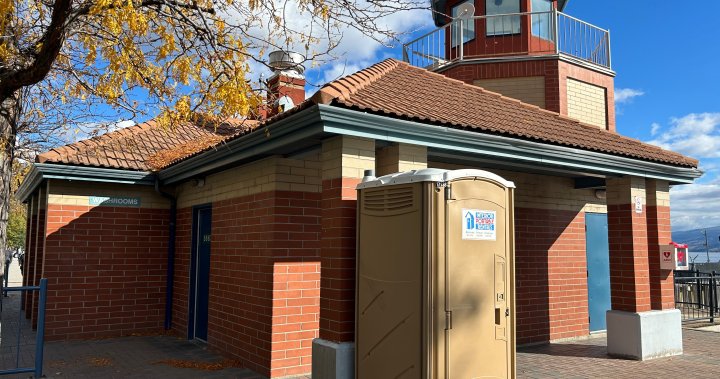Access to a public washroom in Peachland is soon to be limited, with the facility closing at 3:30 p.m. every afternoon. The decision was made in response to ongoing vandalism, but the district revealed that it is also an effort to discourage people from using the washroom as a shelter and causing damage. Many residents feel that there are not enough public washrooms in the area and that those in need should be provided with better resources. The decision to limit washroom access highlights the larger social issue of people struggling with nowhere to turn, especially in small communities like Peachland.
Residents like Linda Limacher and Kim Ausman believe that the city should do more to support those in need of shelter and resources. The district did not provide further details on their decision, citing it as an operational matter. The mayor declined to speak on the issue, stating that the decision was made for the safety of everyone, including those using the washrooms as shelter. The closure of the washroom will take effect on October 24, with a portable toilet being brought in to accommodate users during the limited hours. The issue reflects a growing concern in communities across the country about the lack of resources for individuals experiencing homelessness and other forms of crisis.
Kathleen MacKinnon, an affordable housing manager, emphasized the importance of providing a safe place for individuals in need. She highlighted the fact that the lack of safe places leads people to seek shelter in public spaces, a trend that is no longer exclusive to large cities. MacKinnon called for a compassionate response to the issue and encouraged community members to consider how they can support those in crisis. She expressed hope that an effective response to the situation will be developed in the future, as communities continue to grapple with the affordable housing crisis and other social challenges.
The decision to limit access to the public washroom in Peachland has sparked debate among residents and advocates for vulnerable populations. Some see it as a necessary step to prevent vandalism and unauthorized sheltering, while others argue that it further marginalizes those in need of support. The closure of the washroom at 3:30 p.m. daily may leave many individuals without a safe place to use the facilities, especially during the colder months. The district’s decision reflects a broader issue in communities across the country, where limited resources and lack of support exacerbate the challenges faced by vulnerable populations.
Local advocates like Kim Ausman are calling for a more compassionate response to the issue, emphasizing the need for the city to provide better resources for those experiencing homelessness and crisis situations. With the closure of the public washroom, alternative solutions such as portable toilets are being implemented to accommodate users during the restricted hours. Mayor Patrick Van Minsel stated that the decision was made with the safety of all individuals in mind, but the issue raises questions about the level of support available for those in need. The closure of the washroom highlights the ongoing struggles faced by individuals in small communities like Peachland, where resources are limited and social challenges are prevalent.
As communities continue to grapple with issues of homelessness, affordability, and social support, the closure of the public washroom in Peachland serves as a reminder of the need for compassionate and effective solutions. Advocates like Kathleen MacKinnon stress the importance of providing safe and inclusive spaces for individuals in crisis, and call on community members to consider how they can support those in need. The decision to restrict access to the washroom sheds light on the broader social issues facing communities across the country, and prompts a conversation about how to effectively address the needs of vulnerable populations. With ongoing challenges related to affordable housing and social support, communities like Peachland must work together to find sustainable solutions that ensure the well-being of all residents.


